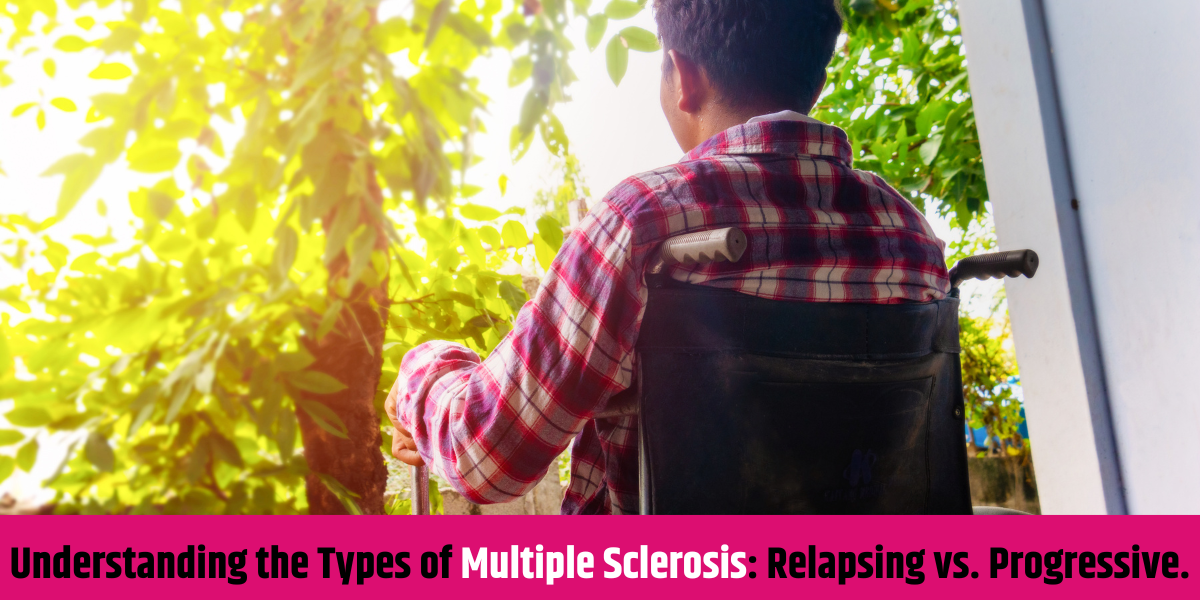Understanding the Types of Multiple Sclerosis: Relapsing vs. Progressive.
Multiple Sclerosis (MS) is a complex autoimmune disease that affects the central nervous system, presenting in various forms. For individuals experiencing symptoms of MS, consulting a knowledgeable neurologist in Hadapsar, Pune, such as Dr. Sadique Pathan at the Neon Brain & Cancer Clinic, is crucial for accurate diagnosis and effective management. Understanding the two main types of MS—Relapsing and Progressive—can help patients make informed decisions about their treatment options. Below, we address common questions about these types of MS.
What is Multiple Sclerosis?
Multiple Sclerosis is an autoimmune disorder where the immune system mistakenly attacks the protective sheath (myelin) that covers nerve fibers. This disruption leads to communication problems between the brain and the rest of the body, resulting in a variety of symptoms.
What are the different types of Multiple Sclerosis?
The main types of MS include:
Relapsing-Remitting MS (RRMS): Characterized by clearly defined attacks (relapses) of worsening neurological function, followed by periods of recovery (remission). During remission, symptoms may partially or completely disappear.
Primary Progressive MS (PPMS): Involves a gradual worsening of symptoms from the onset without distinct relapses or remissions. Patients may experience periods of stability, but overall, the condition progressively declines.
Secondary Progressive MS (SPMS): Initially begins as RRMS but eventually transitions to a stage where the disease steadily worsens over time, with or without relapses.
What is the difference between Relapsing MS and Progressive MS?
Relapsing MS:
Symptoms: Patients experience attacks of new or worsening symptoms, which can vary in severity and duration.
Remission: After a relapse, patients often return to their baseline level of functioning or improve.
Treatment: Disease-modifying therapies (DMTs) are commonly used to reduce the frequency and severity of relapses.
Progressive MS:
Symptoms: Symptoms steadily worsen over time without significant periods of recovery. While some patients may experience occasional relapses, the overall trend is a gradual decline.
Management: Treatment focuses on managing symptoms and improving quality of life rather than halting the disease progression.
How are symptoms different in Relapsing vs. Progressive MS?
In Relapsing MS: Symptoms can include fatigue, vision problems, numbness, and motor difficulties, which may suddenly worsen during a relapse.
In Progressive MS: Symptoms are more consistent and can include increased difficulty with mobility, gradual loss of function, and persistent fatigue, with little to no recovery.
How is Multiple Sclerosis diagnosed?
Diagnosis typically involves a combination of medical history, neurological exams, MRI scans, and sometimes a lumbar puncture to examine cerebrospinal fluid. Identifying the type of MS is critical for developing an appropriate treatment plan. Consulting a neurologist in Hadapsar, Pune, like Dr. Sadique Pathan at the Neon Brain & Cancer Clinic, can help ensure accurate diagnosis and management.
For Relapsing MS: Treatments focus on reducing the frequency and severity of relapses. Options include injectable medications (e.g., interferons), oral medications (e.g., fingolimod), and infusion therapies (e.g., natalizumab).
For Progressive MS: Treatment is more challenging, with fewer approved therapies. Options may include symptom management with medications, physical therapy, and lifestyle modifications to improve quality of life.
Can lifestyle changes help manage MS?
Yes! Lifestyle changes can play a significant role in managing MS. Some strategies include:
Regular Exercise: Helps maintain mobility and reduce fatigue.
Healthy Diet: A balanced diet rich in antioxidants and omega-3 fatty acids may support overall health.
Stress Management: Techniques such as meditation, yoga, or deep-breathing exercises can help reduce stress, which may exacerbate symptoms.
What is the outlook for people with MS?
The outlook for individuals with MS varies greatly depending on the type and severity of the disease. While MS is a chronic condition with no known cure, many people lead fulfilling lives with appropriate management strategies and support. For personalized care, consulting a neurologist in Hadapsar, Pune, such as Dr. Sadique Pathan at the Neon Brain & Cancer Clinic, is essential.
Understanding the types of Multiple Sclerosis, particularly Relapsing and Progressive MS, is crucial for effective management and treatment. If you or someone you know is experiencing symptoms of MS, consult a healthcare professional for a comprehensive evaluation and personalized care plan. Consider reaching out to Dr. Sadique Pathan at the Neon Brain & Cancer Clinic for expert guidance on managing MS.



